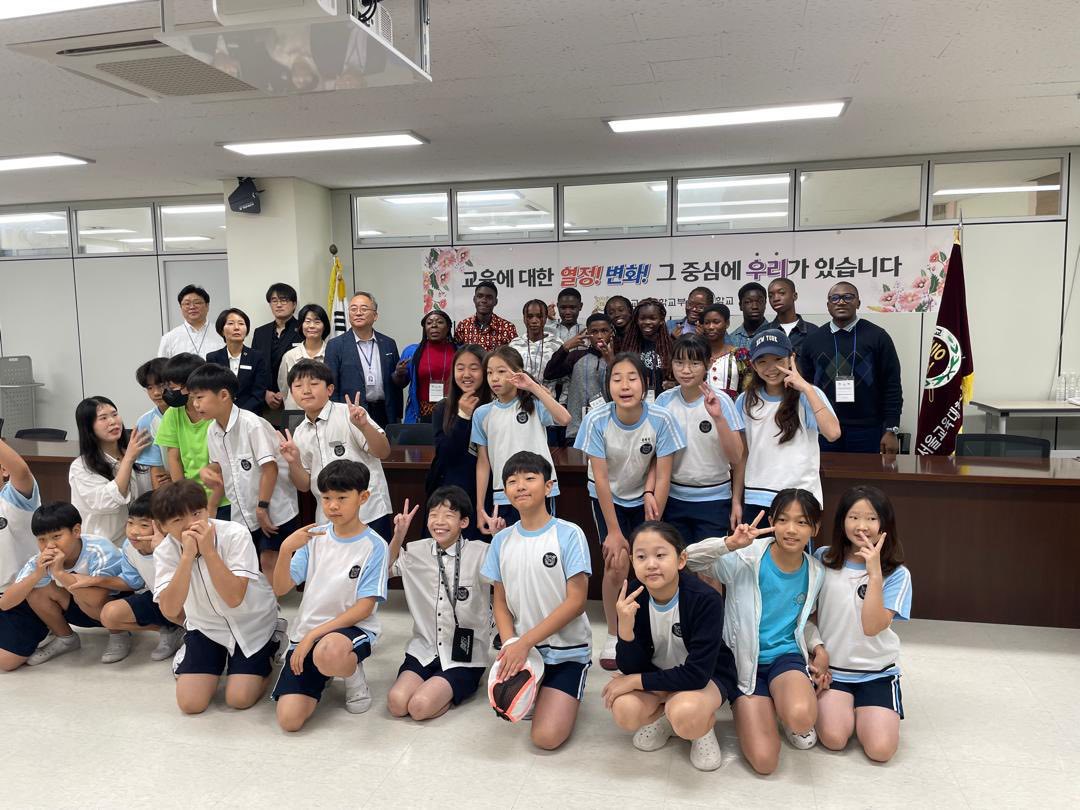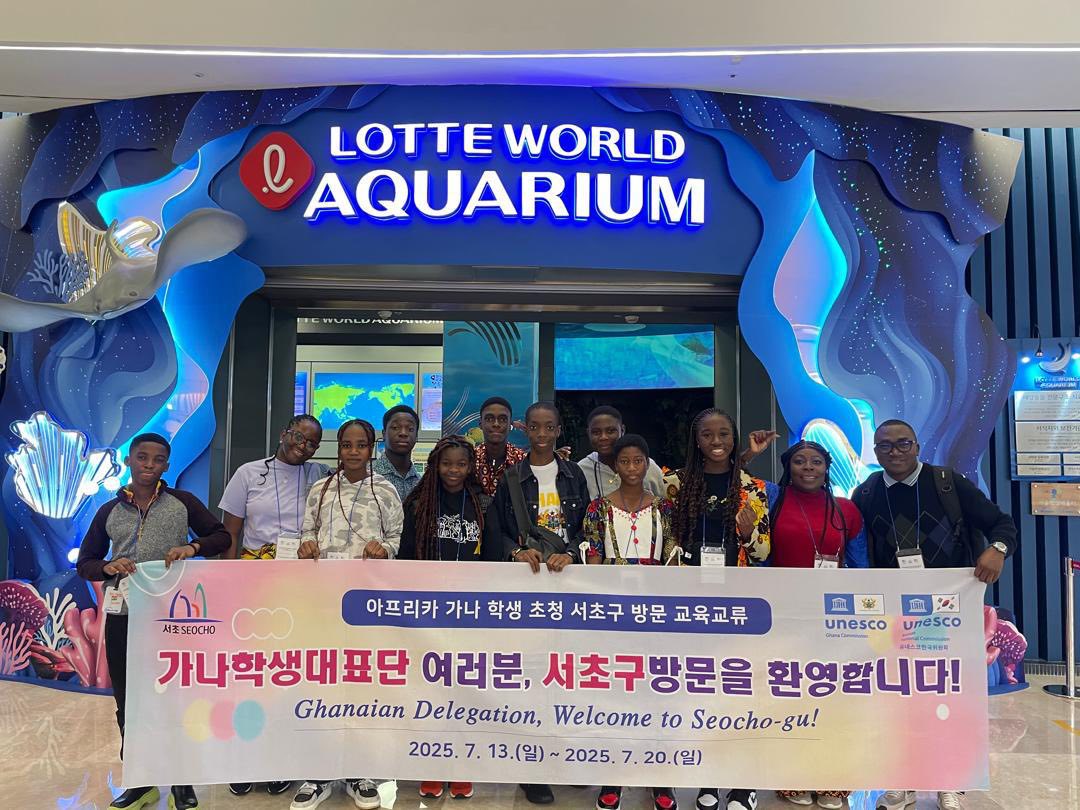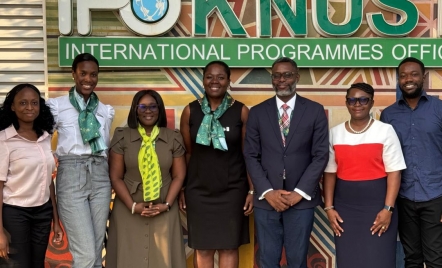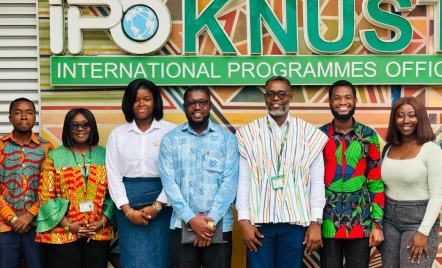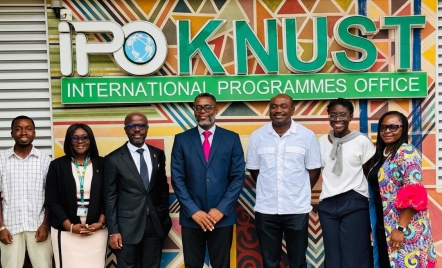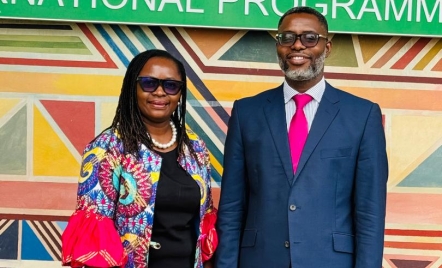From July 13–20, 2025, a delegation of Ghanaian students embarked on a life-changing cultural and educational exchange programme in Seoul’s Seocho-gu District, South Korea. Organized in partnership with the Ghana Commission for UNESCO and the Seocho-gu District Office, the programme exposed participants to Korea’s innovation, culture, and progressive education system.
The delegation included Bethuel Jason Aforo, Nana Kwaku Awere Mensah, and Akua Nyantakyiwaa Adomako, with Dr. Mrs. Beatrice Akosua Andrews (ASPnet Coordinator, Kwame Nkrumah University of Science and Technology (KNUST) Basic School) serving as coordinator.
The journey began with a warm reception at the Seocho-gu City Office, where Mayor Jun Sung-Soo emphasized the importance of youth exchanges in building a more connected world. Students explored Seoul’s Smart Safety Network, which uses over 6,000 AI-powered CCTV cameras for public safety, and the Seocho Smart Hub Center, where they experimented with virtual reality, 3D printing, and digital art.
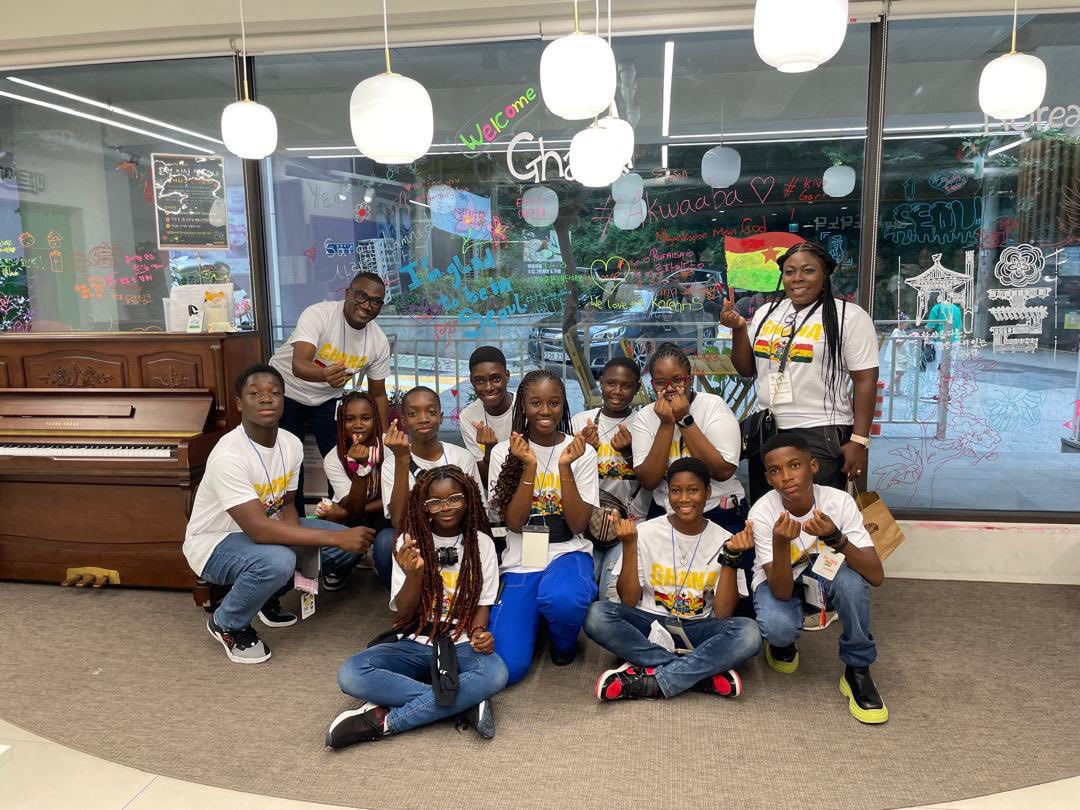
Educational highlights included hands-on experiences at Seoul National University Elementary School, where the “One Student, One Instrument” policy integrates music into everyday learning, and Sinbanpo Middle School, where Ghanaian students introduced their peers to the traditional game ampe. Visits to the Bangbae Forest Environmental Library and Seoul Agricultural Technology Center deepened their understanding of eco-conscious education and aquaponics farming.
Cultural enrichment was equally impactful. The delegation toured Gyeongbokgung Palace, immersed themselves in traditional Korean music at the National Gugak Center, and explored modern landmarks such as the Lotte World Tower and Hyundai Motor Studio. Along the way, they celebrated new friendships, from playing basketball with Korean peers to sharing in an unexpected birthday celebration.
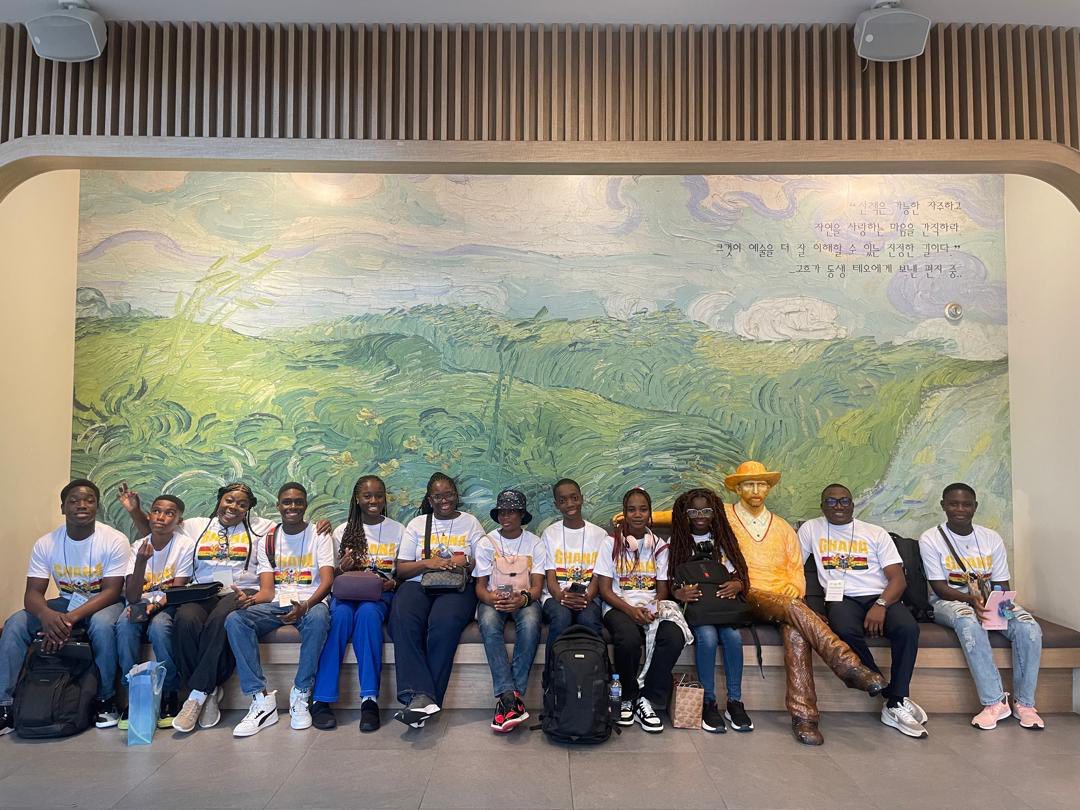
For the Ghanaian students, the exchange was not just a tour but a transformative learning experience. They returned home inspired to apply lessons from Korea in technology, sustainability, and cultural preservation to Ghanaian schools and communities.
This pioneering program marks another milestone in KNUST’s global engagement, reaffirming the university’s commitment to nurturing students as ambassadors of cultural exchange, innovation, and global citizenship.
